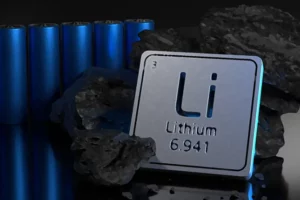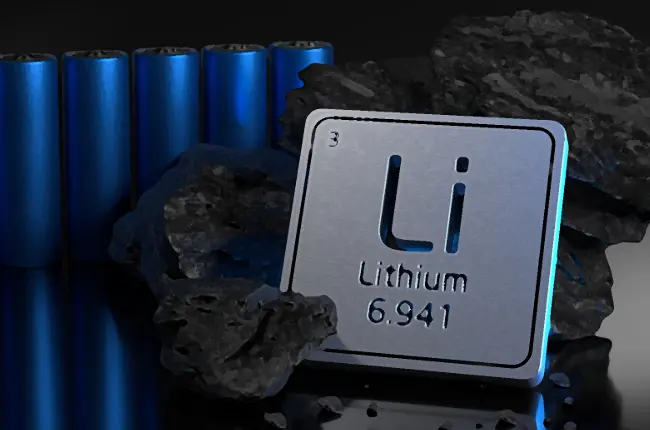Lithium, the lightest metal and a highly reactive element, has gained significant attention due to its versatile applications across various industries. From powering electric vehicles to providing energy storage solutions and even treating mental health disorders, lithium’s unique properties make it indispensable in modern society. In this article, we will explore the diverse uses of lithium and its impact on different sectors.
- Energy Storage and Batteries:
Lithium-ion batteries are one of the most prominent applications of lithium. These batteries are widely used in portable electronics, electric vehicles, and renewable energy storage systems. The high energy density and long cycle life of lithium-ion batteries make them ideal for storing and delivering electrical energy efficiently. The widespread adoption of lithium-ion batteries has transformed the way we power our devices and has enabled the rapid growth of electric transportation and renewable energy integration. - Electric Vehicles:
Lithium plays a pivotal role in the electric vehicle (EV) revolution. Lithium-ion batteries power EVs, providing them with the range and performance necessary for everyday use. The high energy density of lithium-ion batteries allows EVs to travel longer distances on a single charge, reducing range anxiety and increasing their practicality. As the demand for electric vehicles continues to rise, lithium’s importance in the automotive industry will only grow, driving the need for increased lithium production and supply. - Renewable Energy Storage:
Lithium-ion batteries are instrumental in storing energy generated from renewable sources, such as solar and wind. These batteries allow for the efficient capture and storage of excess energy during periods of high production and make it available when demand is high or when renewable sources are not actively generating electricity. Lithium’s ability to provide reliable and scalable energy storage solutions is essential for maximizing the utilization of renewable energy and transitioning to a cleaner and more sustainable energy system. - Electronics and Portable Devices:
Lithium-ion batteries have revolutionized the consumer electronics industry. From smartphones and laptops to tablets and wearable devices, lithium-ion batteries power a wide range of portable electronic devices. Lithium’s high energy density and lightweight properties make it ideal for delivering long-lasting power while keeping devices compact and lightweight. - Pharmaceuticals and Medicine:
Lithium has been used for decades as a treatment for mental health disorders, particularly bipolar disorder. Lithium carbonate is prescribed as a mood stabilizer, helping to control and manage manic and depressive episodes. The exact mechanisms of lithium’s therapeutic effects are still being studied, but it has proven to be an essential element in psychiatric medicine. - Glass and Ceramics:
Lithium compounds, such as lithium carbonate and lithium oxide, are used in the production of specialty glass and ceramics. These materials find applications in the manufacture of LCD screens, touch panels, glass ceramics for cookware, and heat-resistant glass for industrial purposes. Lithium imparts unique properties to these materials, including improved transparency, thermal resistance, and durability. - Aerospace and Aviation:
Lithium plays a crucial role in the aerospace industry, particularly in the production of lightweight alloys. Lithium-aluminum alloys are used in aircraft construction due to their low density, high strength, and corrosion resistance. These alloys help reduce the weight of aircraft, leading to fuel efficiency and increased range. - Lubricants and Greases:
Lithium-based greases are widely used as lubricants in various applications, including automotive, industrial, and aerospace. Lithium greases offer excellent thermal stability, water resistance, and high load-carrying capacity. They provide long-lasting lubrication and are commonly used in automotive chassis components, bearings, and other machinery requiring reliable lubrication. - Nuclear Energy:
Lithium is used in certain types of nuclear reactors and as a neutron moderator in nuclear power plants. It helps control the fission reaction by slowing down the neutrons, allowing for more efficient and controlled energy production.
In conclusion, lithium’s versatility and unique properties have led to its widespread use across diverse industries. From energy storage and electric vehicles to consumer electronics, medicine, and aerospace, lithium plays a critical role in shaping modern technology and advancing various sectors. As the world continues to seek cleaner energy solutions and technological advancements, the demand for lithium is expected to rise further, highlighting its significance in driving innovation and enabling a more sustainable future.

